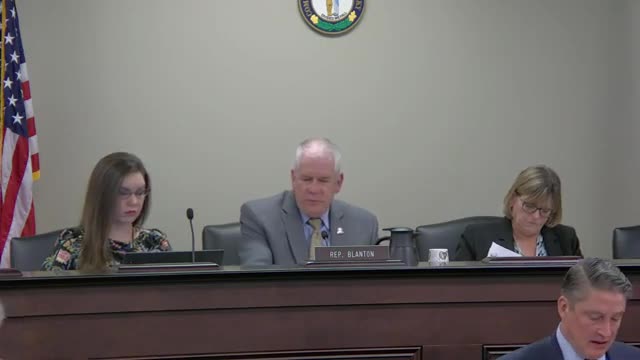Committee backs bill to limit license-plate reader data retention, ban certain trackers

Summary
The House Transportation Committee recommended House Bill 20 for passage after testimony that the bill would limit retention of automatic license plate reader data to 60 days, bar its sale outside law enforcement, and prohibit some nonconsensual tracking devices.
The House Transportation Committee reported House Bill 20 with a favorable recommendation to the full House after testimony from Representative John Hodgson and questions from committee members about enforcement and privacy protections.
Representative John Hodgson, R., said the bill would restrict how automatic license plate readers (ALPRs) and similar tracking devices collect and store location data on U.S. citizens. "So, basically, we're trying to avoid the nonconsensual tracking of the movements of American citizens," Hodgson said during his remarks.
The bill would require owners of an ALPR system — typically a law-enforcement agency, as discussed in testimony — to delete stored ALPR data after 60 days and would make it illegal to sell that data outside the law-enforcement community. Hodgson told the committee the measure also targets small devices sometimes placed on vehicles or persons and subcutaneous trackers that can be used to follow people without consent.
Committee members pressed the sponsor on who would enforce the retention and sale limits. Hodgson said evidence gathered in violation of the bill would likely be excluded from criminal prosecutions under the "poisonous tree" doctrine and that a civil cause of action exists in the draft language; he acknowledged the bill currently does not add separate criminal penalties.
Representative Donworth asked who would ensure compliance with the 60-day deletion requirement. Hodgson replied that the ALPR owner would be responsible and said the bill would convert informal vendor practices into legal limits.
Representative Lehman noted the bill provides for civil actions by aggrieved parties but does not, at this time, add criminal penalties; he said amending the criminal code could be considered in the future.
The committee conducted a roll call vote after discussion. The committee chair reported the bill "with favorable expression" to the House floor.
House Bill 20 will next be scheduled for consideration by the full Kentucky House of Representatives.

